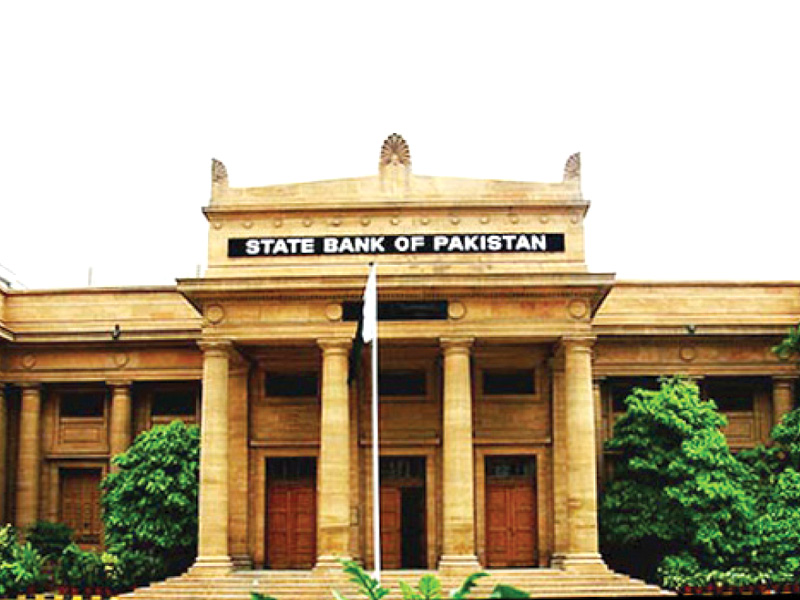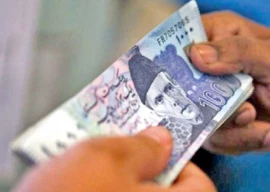
The economic landscape of Pakistan has faced unprecedented challenges throughout fiscal year 2022-23, as outlined in the ‘Governor’s Annual Report 2022-23’ presented by the State Bank of Pakistan’s (SBP) Governor, Jameel Ahmad, on Friday. The comprehensive report not only delves into the challenges faced by the country but also lays out strategies to address them and foster economic resilience.
Ahmad opened the report with a cautiously optimistic tone, stating that economic activities seemed to have bottomed out since July 2023. The central bank has maintained its initial GDP growth projection of 2-3%, with a significant contribution expected from the rebound in agriculture output during the current fiscal year.
The report highlights a positive outlook on export earnings and anticipates a growth trajectory for the country’s foreign exchange reserves. The SBP, in its previous statements, has consistently projected reserves to exceed $9 billion by the conclusion of June 30, 2024.
One of the key pillars of the SBP’s strategy, as highlighted in the report, is a data-dependent approach. Ahmad reiterated the bank’s commitment to closely monitoring high-frequency inflation data to determine future policy rates. Controlling inflation remains a primary focus, and the stability in this metric is considered crucial for achieving sustainable long-term economic growth.
Amid global uncertainties, including fluctuating commodity prices and above-target inflation in advanced economies, the SBP emphasised its commitment to a data-dependent approach to calibrate monetary policy decisions. This approach allows the bank to respond to the changing near-term inflation outlook, ensuring flexibility in the face of evolving economic conditions.
Ahmad reaffirmed the central bank’s earlier forecast, maintaining that the average monthly inflation reading would remain in the range of 20-22% for the fiscal year 2023-24. This comes as the bank’s benchmark policy rate continues to stand at a record high of 22% since the end of June 2023.
Addressing concerns over the current account deficit (CAD), the report projects a low CAD in the range of 0.5-1.5% (less than $4 billion) for the ongoing fiscal year. This projection aligns with the SBP’s broader strategy of maintaining stability in external accounts and ensuring a sustainable balance of payments.
Read Robust agri-sector to help meet GDP target
The Governor’s Annual Report for 2022-23 takes a retrospective look at the fiscal year, acknowledging the significant challenges faced by Pakistan. External and domestic shocks, structural weaknesses, and persistent high inflation amid economic contraction were some of the notable hurdles. The report identifies factors such as monsoon floods, elevated global commodity prices, fiscal consolidation issues, and delays in the International Monetary Fund’s Extended Fund Facility programme as contributors to these challenges.
The average headline National Consumer Price Index inflation surged to 29.2% in FY23, reaching the upper bound of the SBP’s revised inflation projection range. The report attributes this to the aggressive monetary policy stance adopted by most advanced and emerging economies, alongside the pass-through of costlier fuel and food prices, exchange rate depreciation, and other internal factors.
Political uncertainty is highlighted as another factor impacting business and consumer sentiments, ultimately affecting economic activity. Real GDP contracted by 0.2%, and government fiscal and primary balance targets were missed, primarily due to lower-than-planned tax revenues and a reduction in subsidies. In response to these challenges, the SBP maintained a contractionary policy stance throughout the fiscal year, increasing the policy rate by a cumulative 825 basis points. The report highlights that while these measures may have short-term implications on economic activity, they were deemed necessary to meet external debt obligations and ensure macroeconomic stability in the medium term.
Stability in the financial system is a key focus of the SBP, as reflected in the report’s acknowledgment of the steady growth in the country’s financial sector. Total assets of the banking sector grew by 17% in FY23, with Islamic Banking Institutions outperforming their conventional counterparts in various aspects.
The report asserts the SBP’s commitment to maintaining price stability, highlighting the crucial role of fiscal policy and effective administration in supporting stability. The SBP aims to prevent high inflation from becoming entrenched and endeavours to anchor inflation expectations to achieve the medium-term target of 5-7% by the end of FY25. The outlook for FY24 includes an expected moderation in inflation to 20-22%, driven by contractionary monetary policy, improved domestic supplies, softer global commodity prices, and the high base effect.
Published in The Express Tribune, December 30th, 2023.
Like Business on Facebook, follow @TribuneBiz on Twitter to stay informed and join in the conversation.





































COMMENTS
Comments are moderated and generally will be posted if they are on-topic and not abusive.
For more information, please see our Comments FAQ